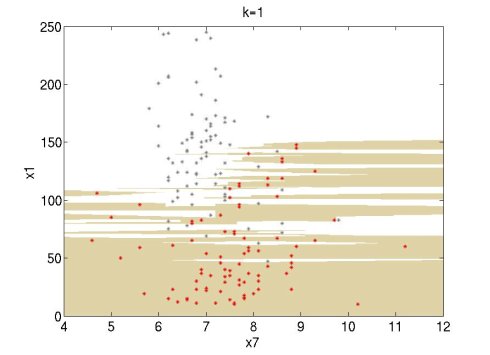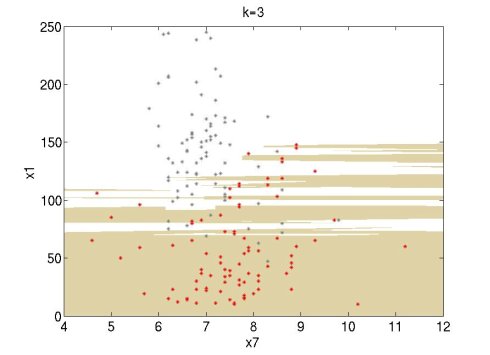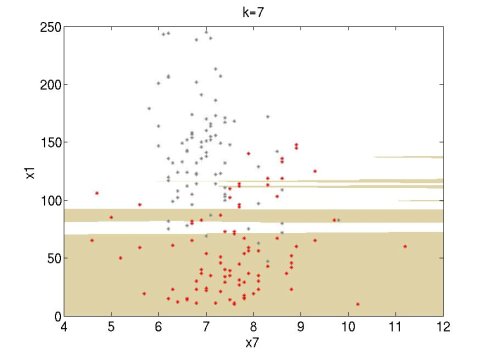| Line 3: | Line 3: | ||
I tried it and it works well. I did some experiments using the Wine data set of UCI (http://archive.ics.uci.edu/ml/datasets.html). I used attributes 1 and 7 of the red wine data set (red points) and the white wine data set (grey points). For this simple experiment, I used only the first 100 data points of each set. The following figures show the classification regions using k=1, 3, 7. The red wine region is brown and the white wine region is white. The regions are constructed using MATLAB's contourf function. | I tried it and it works well. I did some experiments using the Wine data set of UCI (http://archive.ics.uci.edu/ml/datasets.html). I used attributes 1 and 7 of the red wine data set (red points) and the white wine data set (grey points). For this simple experiment, I used only the first 100 data points of each set. The following figures show the classification regions using k=1, 3, 7. The red wine region is brown and the white wine region is white. The regions are constructed using MATLAB's contourf function. | ||
| − | [[Image:nn_k_1.jpg]] | + | [[Image:nn_k_1.jpg]] [[Image:nn_k_3.jpg]] |
| − | + | ||
| − | [[Image:nn_k_3.jpg]] | + | |
[[Image:nn_k_7.jpg]] | [[Image:nn_k_7.jpg]] | ||
Revision as of 09:32, 7 April 2010
I found a MATLAB function for finding the k-nearest neighbors (kNN) within a set of points, which can be useful for homework 3.
I tried it and it works well. I did some experiments using the Wine data set of UCI (http://archive.ics.uci.edu/ml/datasets.html). I used attributes 1 and 7 of the red wine data set (red points) and the white wine data set (grey points). For this simple experiment, I used only the first 100 data points of each set. The following figures show the classification regions using k=1, 3, 7. The red wine region is brown and the white wine region is white. The regions are constructed using MATLAB's contourf function.




